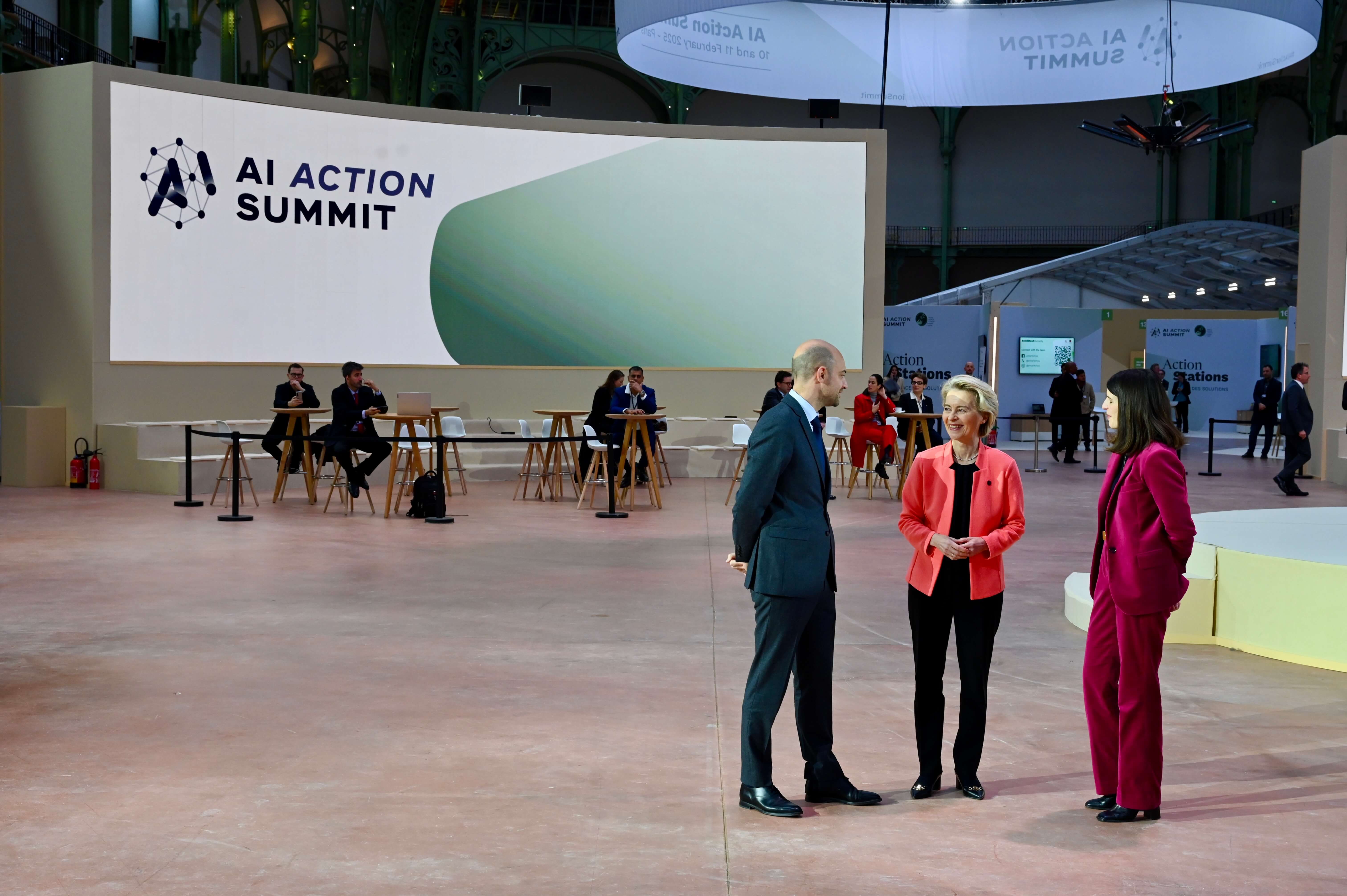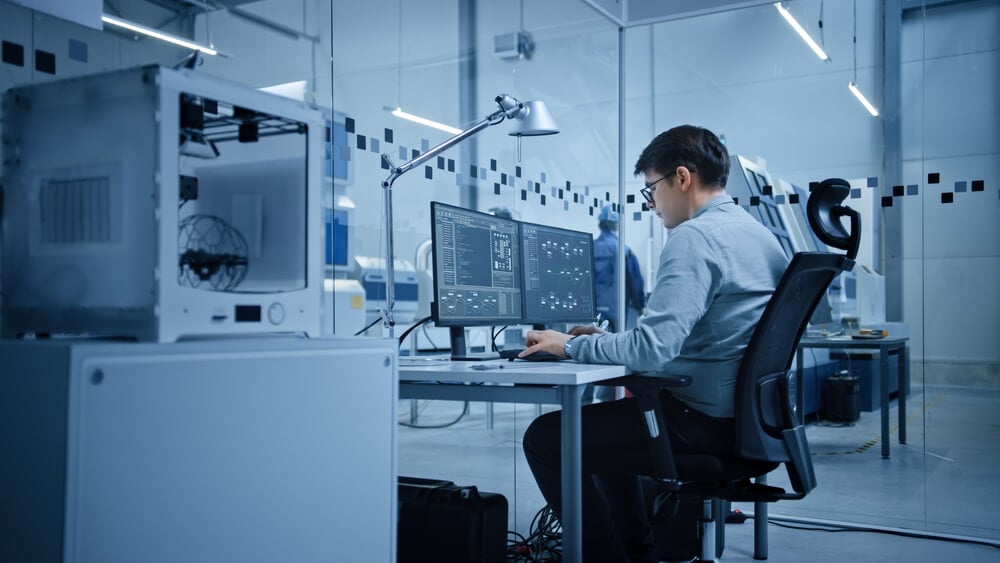In the never-ending AI competition, Europe has taken its most daring step. An important turning point in the technological development of the continent was reached with the announcement this year by the European Commission of a €200 billion investment in AI.
Six new AI factories are at the centre of this programme, serving as the catalysts for Europe's goal of becoming the global leader in AI development.
But what does this mean for Europe? The most important question we are all asking is whether it can truly compete with the US and China.
AI Powerhouses Are Rising in Europe
When the UK recently pledged £14 billion to AI, it was a statement of intent, a signal that Europe would not be left behind in the AI revolution. Now, the EU has answered with an even bolder declaration.
These six AI factories are more than just research hubs; they represent a paradigm shift, a commitment to making Europe a global AI powerhouse.
So where are these AI factories, and why do they matter?
Germany, The Industrial AI Hub
Germany, long regarded as the backbone of Europe's industrial mastery, will host an AI factory focused on manufacturing automation, smart robotics, and next-gen industrial applications.
With Germany's reputation for engineering excellence, this factory will enhance efficiency, reduce waste, and accelerate Industry 4.0 adoption.
France, The Ethical AI Hub
As a leader in AI ethics and legislation, France has established itself. It will establish a global standard for responsible AI by specialising in creating transparent and accountable AI models.
France has experience with ethical frameworks, which could provide European AI a competitive edge in terms of trust and compliance as AI governance becomes a worldwide issue.
Spain, The Quantum Leap in AI
Spain's AI factory will push the boundaries of quantum computing in AI, potentially reshaping the fabric of AI's computational capabilities.
Quantum AI could exponentially increase processing speeds, unlocking materials science, cryptography, and complex simulation breakthroughs.
Netherlands, The AI and Semiconductor Centre
The Netherlands is home to ASML, a significant player in the semiconductor manufacturing sector, and will house a centre dedicated to AI chip research and efficiency improvements.
Given the flaws in the global supply chain and chip shortages, this policy strengthens Europe's strategic independence in semiconductor technology.
Italy, AI for Sustainability
With Europe's Green Deal in mind, Italy's AI factory will focus on AI-driven solutions for energy efficiency, climate modelling, and sustainable development.
AI-powered climate solutions could revolutionise renewable energy management, optimise energy grids, and accelerate decarbonisation efforts.
Sweden, AI and Cybersecurity
Sweden will set up an AI factory dedicated to AI-enhanced cybersecurity in order to include Europe's digital resilience. In the face of an upsurge in cyberwarfare and AI-powered attacks, this project will help protect European organisations, businesses, and critical infrastructure.
Each institute is key to Europe's AI ecosystem, which spans from ethics and business to cybersecurity and quantum.
Europe's New AI Strategy
Investing in these AI factories is about self-sufficiency, sovereignty, and global influence, and Europe is taking a stand and saying that it will not depend on Silicon Valley or Shenzhen to power its AI ambitions. I advise them to be careful, not get too cocky or alienate their most powerful allies.
 Europe is taking a stand and saying that it will not depend on Silicon Valley or Shenzhen to power its AI ambitions
Europe is taking a stand and saying that it will not depend on Silicon Valley or Shenzhen to power its AI ambitions
Europe is also ramping up AI education and workforce development. Universities and research institutions are integrated into the AI strategy, making sure talent pipelines are established and nurtured.
Europe is prioritising AI in public services, healthcare, and infrastructure. AI-driven diagnostics, traffic optimisation, and predictive maintenance for public utilities are just a few examples of how AI investments will directly benefit European citizens.
The Global AI Chessboard Game
The US has Silicon Valley, where giants like Google, OpenAI, and NVIDIA are currently setting the pace. And China has state-backed titans like Baidu and Alibaba, leveraging immense datasets and an aggressive AI strategy.
Often seen as the slow-moving bureaucratic player, Europe is now trying to change that narrative. But does it have what it takes to win?
While the US wrestles with AI policy debates and China pushes ahead with less concern for ethical boundaries, Europe has crafted the AI Act, setting a precedent for responsible AI deployment.
Regulation alone is never enough; innovation must always match governance
However, regulation alone is never enough; innovation must always match governance. This is where the new AI factories come into play; they provide Europe with a new launchpad for homegrown AI breakthroughs, reducing reliance on external players.
If successful, and I say if very carefully, these factories could redefine Europe's position in the AI hierarchy, placing it alongside the US and China as an innovation leader rather than a policy enforcer.
The Challenges We Face
While the vision is inspiring and sounds like the perfect plan, we all know that execution remains the true test. Funding is significant, but it must be deployed effectively.
As the saying goes, an idiot with money is still an idiot! And I say that because Europe has a history of grand technological ambitions that fail to deliver at scale. The AI factories need top-tier talent, cutting-edge infrastructure, and an ecosystem that allows innovation to thrive rather than be buried under red tape.
 Europe must address its AI brain drain. Many of its brightest minds still seek opportunities in the US due to better funding and a faster-moving startup culture
Europe must address its AI brain drain. Many of its brightest minds still seek opportunities in the US due to better funding and a faster-moving startup culture
Europe must also address its AI brain drain. Many of its brightest minds still seek opportunities in the US due to better funding and a faster-moving startup culture.
Will these AI factories finally offer an alternative compelling enough to reverse that trend? Will the new talent be enticed enough to stay in Europe?
Collaboration will be another key factor. If these AI factories operate in silos, Europe risks fragmentation. Instead, an interconnected AI ecosystem needs to be where knowledge-sharing and cross-border partnerships amplify Europe's AI capabilities.
Is Europe Ready to Step Up?
This investment and bold announcements are not just about AI; they are about the future of Europe's technological independence. It's about showing that Europe is a rule-maker and an innovation driver. This sounds great in essence, but in my opinion, implementation is a whole other game. I have seen too many plans over the years that lead to nowhere.
So, can these six AI factories propel Europe into the AI superpower club? Although that remains to be seen, for the first time in a long time, Europe is no longer just a spectator in the AI race. I believe this is Europe's opportunity to lead in groundbreaking AI innovation.
The foundation has been laid, but will Europe have the agility, determination, and execution to realise this vision? The world is watching.